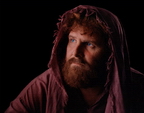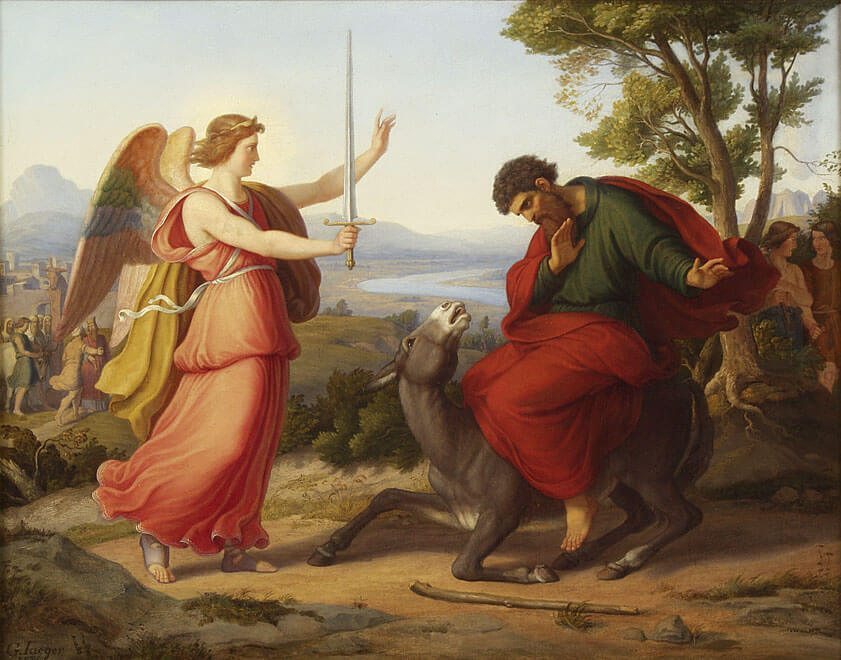Tuesday, August 23
Let the one who thinks he is standing beware that he does not fall.
Consider King David of ancient Israel. As a young person, he was victorious over the Philistine giant Goliath. David became a soldier, a king, a protector, and a decision-maker for a nation. But when David relied on himself, his heart deceived him and he committed a serious sin with Bath-sheba, even arranging to have her husband, Uriah, killed. When disciplined, David humbly admitted his error and reestablished his relationship with Jehovah. So let us heed the advice found in our text for today and not become overconfident. Since we are unable to ‘direct our step,’ eventually we will listen either to the voice of Jehovah or to the voice of his Adversary. May we pray constantly, follow the leadings of the holy spirit, and always listen closely to Jehovah’s voice.
COMMENTARY
What applies to individuals may also be applicable to a group, to nations and organizations, to institutions.
The warning Paul voiced was directed to individual Christians. And we should certainly acknowledge our vulnerabilities and rely upon God not to lead us into temptation and deliver us from the wicked one.
But as a collective of believers, otherwise known as a congregation, it is also possible to not give ear to Jehovah, to be misled and to fall as a consequence. If anyone doubts the truth of that they would do well to consider the many accounts and prophecies recorded in the Bible, to which Paul was alluding, that stand as warning example for us upon whom the end of the system is coming.
It can truthfully be said that the basic underlying theme of virtually all of the Hebrew prophetic books is the disastrous fall of Israel and Judah. And woven throughout those many prophecies the fall and subsequent restoration of Israel is tied to the coming of Christ and the final part of the days, making the catastrophe that befell Israel a pattern, a type relevant to Christianity. Consider the prophecy in the ninth chapter of Amos:
“Look! The eyes of the Sovereign Lord Jehovah are on the sinful kingdom, and he will annihilate it from the surface of the land. But I will not completely annihilate the house of Jacob,’ declares Jehovah. ‘For look! I am giving the command, and I will shake the house of Israel among all the nations, just as one shakes a sieve, and not a pebble falls to the ground. They will die by the sword, all the sinners of my people, those who are saying, “The calamity will not come near us or reach us.” In that day I will raise up the booth of David that is fallen, I will repair the breaches, and I will restore its ruins; I will rebuild it as in the days of long ago, so that they may take possession of what is remaining of Edom, and all the nations on whom my name has been called,’ declares Jehovah, who is doing this.”
That the prophecy applies to Christianity is verified by James in the 15th chapter of Acts. It is evident the apostles understood that the “booth of David” was the congregation of Christ, also called the Kingdom, since Jesus was the rightful heir of the throne of David. And, of course, the congregation became the “Israel of God” to which non-Israelite believers from the nations were gathered. However, there is no indication that first century Christians were called by God’s name.
Ultimately the desolation and restoration of “Israel” applies to Christianity. Jesus himself spoke of the desolation of the holy place and the trampling of Jerusalem by the nations as a prominent feature of the things to come during the conclusion. It is “the booth of David,” Christ’s Kingdom, his congregation, that is due to fall in ruins and be trampled upon for an appointed time.
The prophecies in Daniel foretell that the holy ones will be brought to ruin, the holy place being desolated and that the last king will even exalt himself against the Prince of the army —Christ himself.
The leadership of Jehovah’s Witnesses find themselves in the unenviable position of having the words found in Amos attributable to them, as if they’re saying: “The calamity will not come near us or reach us.”
To be sure, the rebuilding of the booth of David is a future event. It will be manifest in the coming of Christ and the regathering into the Kingdom those whose faith survives the fall of the Watchtower, .
“For the fortified tower has been forsaken; the noisy city has been abandoned. Ophel and the watchtower have become a permanent wasteland, a delight for wild donkeys, a pasture for the flocks, until the spirit is poured out on us from above, and the wilderness becomes an orchard, and the orchard is regarded as a forest.” —Isaiah 32:14-15



